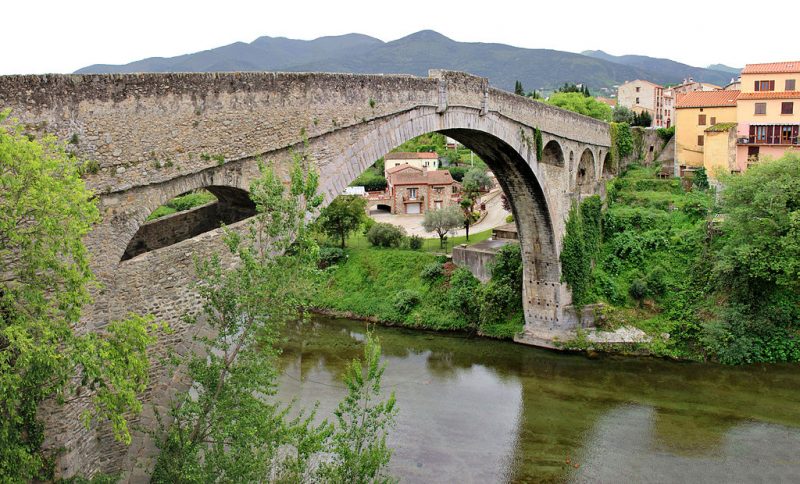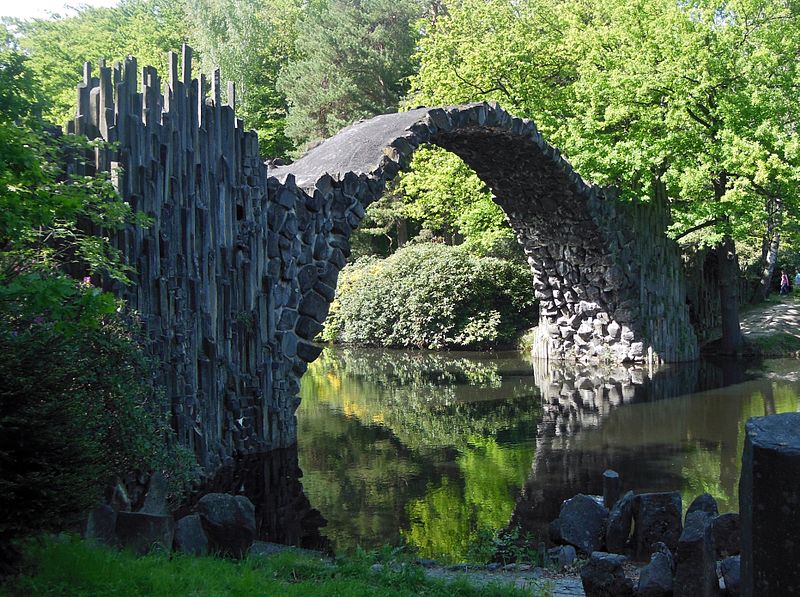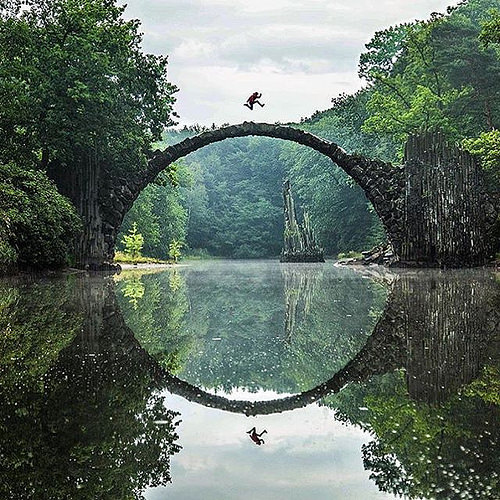Throughout Europe, there are numerous Devil’s bridges. Most of them are stone or masonry arch bridges and each has a corresponding Devil-related myth or folktale. Many of them have been built between 1000 and 1600 AD.
In France, alone there are 49 Devil’s Bridges, but Devil’s Bridges can be found also in Italy, Germany, Portugal, Slovenia, Spain, Switzerland, United Kingdom, Estonia, Romania, Bulgaria, and many other countries in Europe and throughout the world.

However, there is no other Devil’s Bridge in the world that is so unique, beautiful and mystical as the Rakotzbrucke or the Devil’s Bridge in Germany. Undoubtedly, the Rakotzbrucke is the most picturesque of all Devil’s bridges in the world.
The Rakotzbrucke is located in the largest park in Saxony, Kromlau Park, 120km northwest of Dresden, near the German-Polish border. The park was commissioned in the 19-th century by Friedrich Hermann Rotschke, the knight of Kromlau and a nature lover. It contains around 200 acres of beautiful landscape with Gothic architecture within and of course the Devil’s Bridge.
As mentioned above, many of the Devil’s bridges were built between 1000 and 1600 AD, but that is not the case with the Devil’s Bridge in the Kromlau Park and this bridge dates back to the 1860s.
There are many legends attached to this architectural masterpiece. One of those legends says that the architect who has built the bridge made a pact with the Devil in order to build a unique bridge. In return, the devil wanted to take the soul of the person who would be the first to cross the bridge.

However, the architect outwitted the Devil letting a dog cross the new-built bridge. According to another legend, the architect honored the deal by walking the bridge himself.
Another mystical story related to the Rakotzbrucke says that one will discover mystic abilities inside himself if sailing in a boat under the bridge at a full moon. Some people believe one can see the face of the Devil if looking sideways and others claim that the bridge is a portal to another world.

The most interesting fact about this bridge is that the parabola of the bridge is designed to be one-half of a perfect circle, so that when the waters are still and the light is right, it creates an illusion of a complete stone circle. The bridge also contains stone structures that were constructed around the bridge.
The Rakotzbrucke is not open for casual tourist walks in order to be preserved for the future generations.
No comments:
Post a Comment